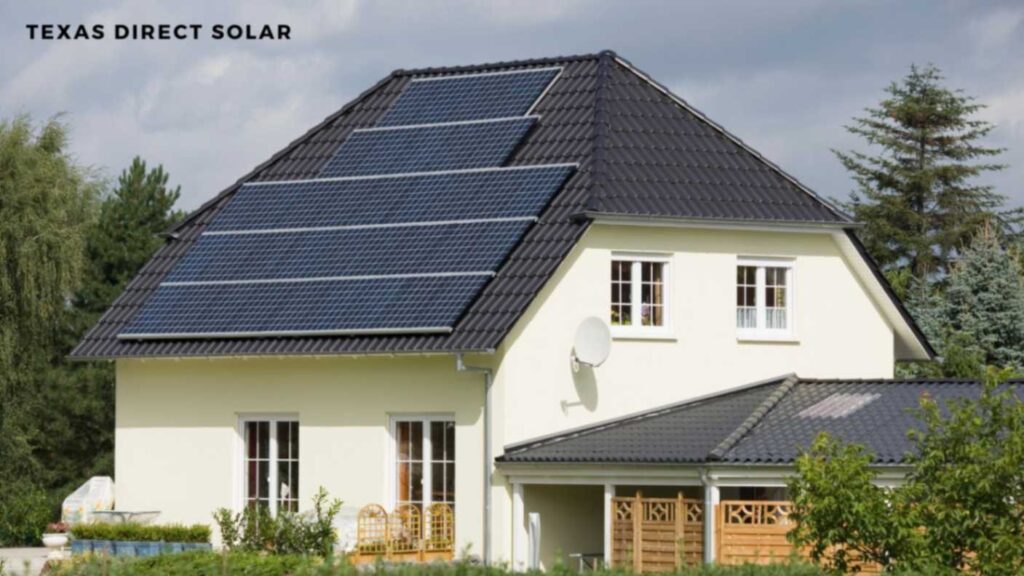This article will cover the frequently asked question: How much do you save from solar panels in a month? Solar panels are used to convert sunlight into electricity and give lots of blessings to their users. In the United States, majority consider solar panels because it’s the best way to get monthly savings on electricity bills.
Most homeowners have a question: Do you really save money with solar panels? Yes, is the response. You can keep anywhere from $10,000 to $90,000 on power throughout your life. Your financial savings will vary based on various factors. How much cash solar electricity can save you depends largely on nearby energy expenses. The more you store extra, the higher the prices. The length of your private home and the quantity of direct sunlight additionally affect how much financial advantage solar energy can provide.
Here is a thorough explanation to help you comprehend:
Initial Cost vs. Long-Term Savings from Solar Panels
The upfront price of installing solar panels can be considerable; however, the long-term savings can be high. On average, owners in the U.S. can anticipate keeping about $25,800 over the 25-12-month lifespan of their solar panel after recouping the initial set-up costs. The payback length for solar panels—that means the time it takes to get better at the preliminary investment through financial savings on strength payments—averages around 8.5 years.
Factors Influencing Your Monthly Savings:

Local Sunshine
The amount of sunlight your solar panels receive is a main component in figuring out your savings. States with excessive solar irradiance, inclusive of California, Arizona, and Florida, typically see extra energy production and, consequently, higher savings. Conversely, areas with less daylight, like Washington or New York, will generate less electricity and may require extra measures, such as battery storage, to maximize monthly savings.
Local Electricity Rates:
The price you pay for energy impacts how much you store with solar panels. Higher energy fees suggest extra savings. For example, if you pay 20 cents per kilowatt-hour (kWh) and your solar system generates 1,000 kWh per month, your financial savings would be:
1,000 kWh×$0.20 in line with kWh=$200 consistent with the month
1,000 kWh×$zero.20 in keeping with kWh=$2 hundred in line with month
In evaluation, if you live in a place with decreased prices, such as 10 cents per kWh, your monthly savings might be:
1,000 kW×$0.10 per kWh = $100 per month.
Net Metering
Net metering allows you to send extra strength generated by using your solar panels back to the grid, earning credit on your power bill. This can efficiently enhance your savings. The cost of those credits varies depending on the state and utility provider. In a few cases, you may receive a complete retail fee for the surplus power, which maximizes your monthly savings.
System Size and Efficiency
The size and performance of your solar device will impact your financial savings. Larger solar systems or those with higher-efficiency panels will generate more energy, offsetting a greater part of your energy invoice. For example, a 5-kW solar device generating 7,500 kWh annually could cost between $750 and $1,500 per year, depending on your neighborhood power fee.
Incentives and Rebates
Many owners can reduce the price of their solar panels through federal and state incentives. The federal Investment Tax Credit (ITC) gives a 30% tax credit on the cost of the solar system. Additionally, a few states provide rebates, sales tax exemptions, and belongings tax exemptions, which may decrease the preliminary funding and grow average monthly savings from solar panels.
How Much Do Solar Panels Cost?

Home solar size | Average cost in the U.S | Net Cost After the Federal Tax Credit of 30% |
| 5 KW | $12,250 | $7,975 |
| 6 KW | $15,100 | $9,970 |
| 7 KW | $17,950 | $11,965 |
| 8 KW | $20,800 | $13,960 |
| 9 KW | $23,650 | $15,955 |
| 10 KW | $26,500 | $17,950 |
Conclusion
Solar panels offer enduring financial advantages in the long run, with average savings of around $25,900 over 5 to 25 years. You can expect good monthly savings from solar panels. Factors such as local electricity rates, sunlight exposure, system size, and net metering regulations play an essential role in figuring out the actual rate you can save. By taking into account these factors and leveraging available incentives, you can make a competent decision about the financial benefits of installing solar panels. If you’re willing to get more information, reach us at https://texasdirectsolartx.com.

